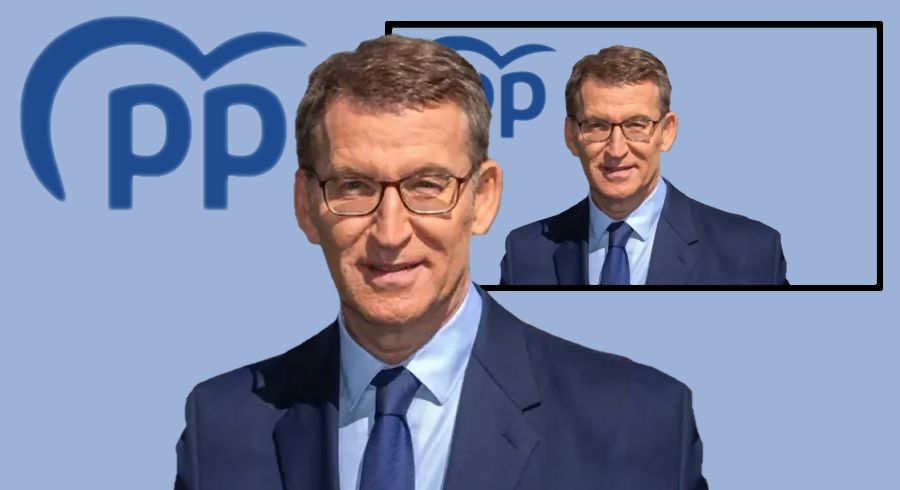LEGISLATIVE IN SPAINCLOSE VICTORY FROM THE RIGHT | |
 Alberto Núñez Feijóo asserted himself as the winner, claiming loud and clear the victory of the Popular Party in the legislative elections. From the balcony of the party headquarters, he declared that the PP had "won the elections" and expressed its intention to "form a government", while inviting the Socialists not to "block" this government formation. Indeed, on paper, the Spanish right obtained a positive result in these elections on Sunday July 23. With 33% of the vote, the Popular Party, led by Alberto Núñez Feijóo, won 136 seats, an increase of 47 deputies compared to 2019. However, it is still far from the 150 seats that the polls predicted for it to obtain the majority to the Cortes (out of a total of 350 deputies). Even with the support of the far-right Vox party (12.5%), which won 33 seats (down 19), as well as one or two right-wing regionalist deputies, the PP will not be able to achieve this majority . Therefore, his chances of forming a minority government in the House are very slim. Alberto Núñez Feijóo asserted himself as the winner, claiming loud and clear the victory of the Popular Party in the legislative elections. From the balcony of the party headquarters, he declared that the PP had "won the elections" and expressed its intention to "form a government", while inviting the Socialists not to "block" this government formation. Indeed, on paper, the Spanish right obtained a positive result in these elections on Sunday July 23. With 33% of the vote, the Popular Party, led by Alberto Núñez Feijóo, won 136 seats, an increase of 47 deputies compared to 2019. However, it is still far from the 150 seats that the polls predicted for it to obtain the majority to the Cortes (out of a total of 350 deputies). Even with the support of the far-right Vox party (12.5%), which won 33 seats (down 19), as well as one or two right-wing regionalist deputies, the PP will not be able to achieve this majority . Therefore, his chances of forming a minority government in the House are very slim.For PP activists, the disappointment was palpable on Sunday evening. However, 61-year-old Alberto Núñez Feijóo seemed to be the man for the job. In April 2022, he saved the great right-wing party, undermined by internal struggles between its former leader Pablo Casado and rising star Isabel Díaz Ayuso. Opposite, the Socialist Party of Pedro Sanchez achieved an unexpected performance. With 32% of the vote and 122 deputies (two more than in 2018), the PSOE managed to preserve its position. Its ally Sumar, a coalition of more left-wing and environmentalist parties, replaced Podemos, the radical left party. Despite everything, the socialist Pedro Sanchez, in power for five years, is in a more advantageous position than his conservative rival. He retains, against all odds, a chance to stay in power thanks to alliances. He could get the support of the Basque and Catalan parties, for which Vox is a bugbear. The well-known anti-fascist slogan of the Civil War (1936-1939), "No pasarán" (They will not pass), was taken up enthusiastically by socialist activists on Sunday evening. By warning against the threat of the far right, but also by emphasizing its rather positive economic results (fall in unemployment, record growth in Europe), Prime Minister Pedro Sanchez succeeded in mobilizing well beyond the predictions of the institutes of survey. However, like Feijoo, Sanchez does not seem to have the means to obtain an absolute majority in the Cortés, even with the support of the left-wing regionalist, Basque and Catalan parties. The most likely scenario today is the calling of new elections, which would represent the fifth time that Spain has had legislative elections between 2015 and 2019. |
|
| Britney Delsey for DayNewsWorld | |
 |
|



